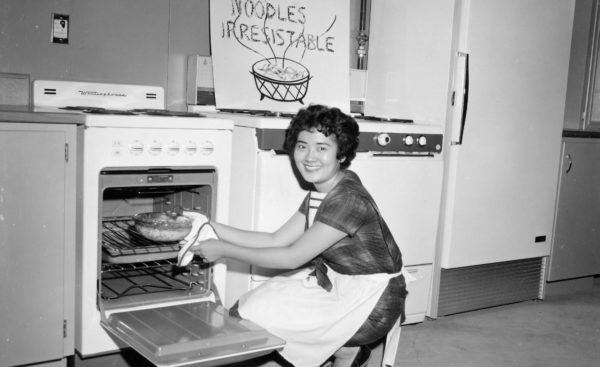

Access free webinars here. For the member password, please contact the AMIA office or check Member Updates.
 Web Archiving for all! archiveweb.page (Day 1)
Web Archiving for all! archiveweb.page (Day 1)ArchiveWeb.page, a high-fidelity web archiving system available as a Chrome extension from the Chrome Web Store. This new tool is similar to a webrecorder’s desktop version for web archiving, but as an extension, it allows for personal web archiving directly in the browser for Chromium-based browsers. Website: https://archiveweb.page/ GitHub Repo: https://github.com/webrecorder/archiveweb.page
 Web Archiving Browsertrix-crawler Workshop (Day 2)
Web Archiving Browsertrix-crawler Workshop (Day 2)Browsertrix Crawler is a simplified browser-based high-fidelity crawling system, designed to run a single crawl in a single Docker container. It allows for personal web archiving via your terminal. GitHub Repo: https://github.com/webrecorder/browsertrix-crawler
 Applying AI and NLP Tools to AV Archival Material
Applying AI and NLP Tools to AV Archival MaterialThis workshop addresses recent efforts in artificial intelligence (AI) and natural language processing (NLP) to help archives, libraries, and museums both manage and enhance their A/V content. Specifically, applications being developed within two multimedia AI platforms, AMP and CLAMS. Workshop is 3.5 hours.
 Unlocking Moving Images in Archives: A Conversation with Hope O’Keeffe
Unlocking Moving Images in Archives: A Conversation with Hope O’KeeffeFrom the AMIA Copyright Committee Meeting – February 19, 2021
 Navigating Grant Funding for Local TV Collections: A Roundtable
Navigating Grant Funding for Local TV Collections: A RoundtableThis hour long roundtable webinar discussion features colleagues from across the United States who have successfully navigated these challenges and received national and regional grants to fund the preservation of educational, community-access, public broadcasting, and local network TV collections.
 Intro to Command Line
Intro to Command LineA cursory introduction to identification and basic handling of audiovisual assets in their digital forms and managing these digital files in the command line.” The webinar includes a tutorial intro to basic command line utilities in order to follow along the demos in using MediaInfo, concluding with guidance on error-reading and troubleshooting.
 Intro to AV Specific Cataloging
Intro to AV Specific CatalogingAn introduction to describing audiovisual materials, with a focus on the PBCore metadata schema. Introduction to basic concepts of audiovisual metadata; how records are structured in XML; the role of controlled vocabularies; and best practices for recording key descriptive and technical characteristics of media assets.
 Intro to AV Formats and Risk Factors
Intro to AV Formats and Risk FactorsAn introduction to identification and basic handling of audiovisual assets, with a focus on analog media. Included: how to identify all of the major analog audiovisual asset types (film, video and audio tape, and optical media; the major risk factors for these media; how to perform a visual inspection in order to gauge their health and risk level; and, how to properly store media to improve potential lifespan and mitigate damage.
 Airtable for A/V Archivists
Airtable for A/V ArchivistsAn overview of Airtable basics such as tables, fields, and views, and show how this tool can be leveraged to manage different kinds of metadata and projects; create controlled vocabularies and authority lists; de-duplicate and normalize records, as well as introduce more advanced features such as Airtable blocks, using the Airtable API to facilitate batch functions, and use of Airtable as a CMS backend for websites.
 The Remote Archivist: Alternative Archival Workspaces
The Remote Archivist: Alternative Archival WorkspacesTips on how to set up mobile vehicles, home transfer stations and alternative workspaces suitable for archivists with limited access to an archive or supporting staff. A series of mini-presentations followed by a moderated discussion and open forum Q&A.
 Navigating Grant Funding for Local TV Collections: A Roundtable
Navigating Grant Funding for Local TV Collections: A RoundtableThis hour long roundtable webinar discussion features colleagues from across the United States who have successfully navigated these challenges and received national and regional grants to fund the preservation of educational, community-access, public broadcasting, and local network TV collections.
 Crowdsourcing Metadata Within Your Communities:
Crowdsourcing Metadata Within Your Communities:The majority of local television news film collections are still largely undiscoverable at the end of the second decade of the 21st century. Crowdsourcing the description of local TV news collections is one potential solution. Natasha Margulis, Digital & Political Collections Archivist at Arkansas State University, will share her model for handling the descriptive metadata the archives are gathering to enhance discoverability and accessibility of a local TV news film collection.
 Remote Collections Management
Remote Collections ManagementThis two session panel discussion on cultural heritage practitioners working with audiovisual media, many of whose jobs involve handling physical object. Social distancing and working remotely during COVID-19 have prevented direct access to onsite collections and vaults.
 Ethical and Security Considerations for AV Archiving in the Time of the BLM Movement and COVID-19
Ethical and Security Considerations for AV Archiving in the Time of the BLM Movement and COVID-19Helpful tips for navigating what is a very difficult time to search for a new job. It will also act as part of a larger support network that AMIA is creating for its members and others in the field to meet and share their worries and successes. This recording is the first half of the event, consisting of short presentations from the panelists. The second half of the event was an open discussion and not recorded.
 RAVA Incubator: A Q&A with Regional AV Archives Founders
RAVA Incubator: A Q&A with Regional AV Archives FoundersRegional audiovisual archives are equal parts challenge, joy, and solid MacGyver-type skills. This one hour webinar Q&A featured several AMIA Members who have founded a regional audiovisual archive in the United States. The RAVA Incubator is a Sub-Committee of AMIA’s Regional Audiovisual Archives (RAVA) Committee.